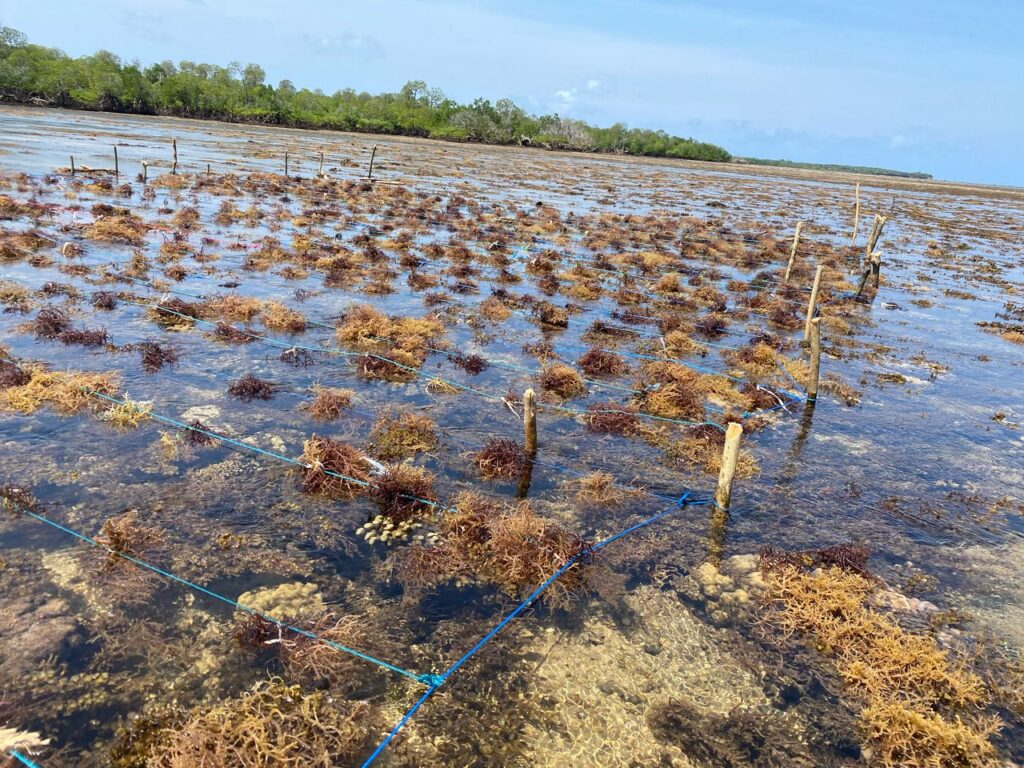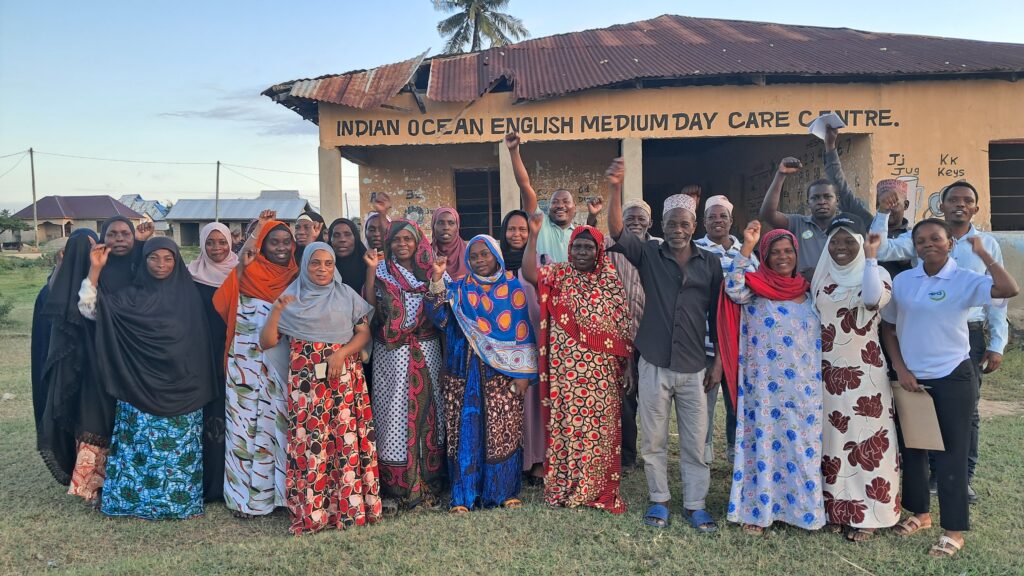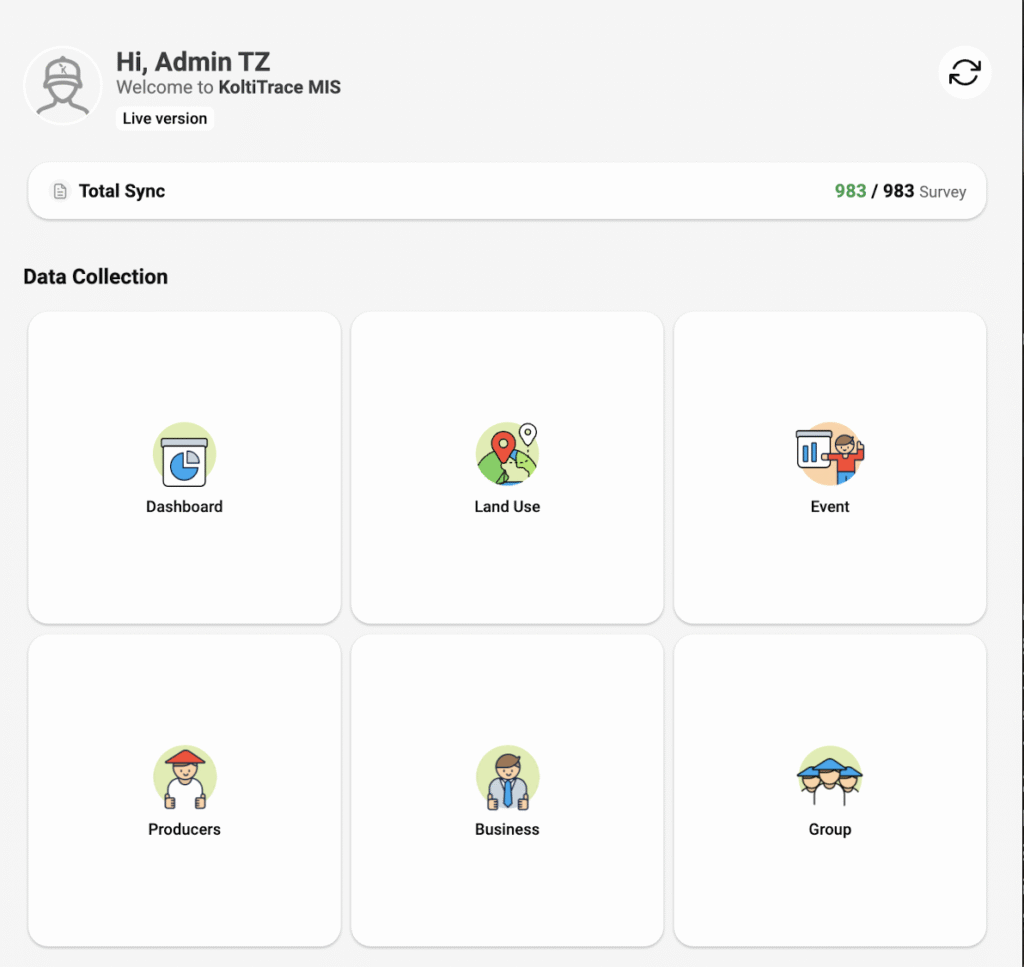A new era of data-driven, climate-resilient livelihoods begins on the coast of Tanga
Around the world, digital traceability is becoming the new language of trust. From coffee and cocoa to carbon and coral, global markets now demand proof not promises of where products come from, how they are made, and who truly benefits. As climate change and consumer awareness reshape trade, traceability has moved from being a luxury of transparency to a currency of credibility.

Now, this transformation is reaching Tanzania’s coastline. In the small fishing village of Boma, Tanga, seaweed farmers are stepping into a new digital tide. Their harvests once tracked only by ropes and notebooks will now be logged in real time through the Koltiva platform, a system that connects every farmer, buyer, and batch of seaweed through verifiable data.
Led by Action for Ocean (AFO) and partners through the Africa Fair Seaweed Finance Facility (AFSFF), this initiative will mark one of East Africa’s first large-scale efforts to merge traditional blue livelihoods with cutting-edge digital infrastructure. The goal is simple but revolutionary: to make every strand of Tanzanian seaweed not just a product of the ocean, but a data-backed story of sustainability, equity, and climate resilience.
In the coming months, groups like Makoroni in Mkinga, Tanga have become early adopters, using digital tools to map their farms, track harvests, and link to markets(future-looking) in real time. For many, it is their first experience seeing their data travel from village to value chain — turning years of informal labor into traceable, recognized contributions.

“We are not just collecting data,” says Fadhili Makongo, AFO field extension officer. “We are building digital identities for farmers, proof of productivity, proof of quality, proof of worth.”
Digitizing the Blue Economy
Seaweed farming has long anchored coastal livelihoods across Tanzania, providing income, nutrition, and independence for thousands especially women and youth. Yet, despite its social and ecological value, the industry has operated largely off the grid: untracked, unbanked, and undervalued.
AFSFF aims to change that. The introduction of Koltiva’s digital platform will connect every seaweed farmer in its network to a transparent data ecosystem, where harvest volumes, quality metrics, and buyer relationships are logged and verified.
This traceability system will soon serve as a passport for farmers, opening doors to financial services, insurance, and impact investment. With digital records, financial institutions will be able to assess risk, offer microloans, and design credit systems based on verified data rather than speculation.

Laying the Groundwork for Scalable, Inclusive Growth
The upcoming rollout builds on strong community foundations already laid by AFO and its partners. Over the past year:
- 259 seaweed farmers — 203 women and 56 men — have been trained in financial literacy, sustainable farming, and cooperative management.
- Eight Village Savings and Loan Associations (VSLAs) have mobilized TZS 7.27 million in matching funds and building a culture of saving and reinvestment.
- 8.3 hectares of coastal land are now under sustainable aquaculture management, providing a strong base for digital integration.
These milestones are just the beginning. The Koltiva’s system will now provide a unified platform for tracking productivity, gender inclusion, and environmental impact; strengthening AFSFF’s position as a blue finance innovation hub for the Western Indian Ocean(WIO).
The Future Is Hybrid: Ropes, Data, and Empowerment
The transformation is guided by AFO’s CLEAR Model—Coastal Livelihood Entrepreneurship for Adaptation and Resilience. This approach links community-based finance with digital traceability, creating a hybrid model where technology amplifies tradition instead of replacing it.
In the near future, every bundle of seaweed will carry a digital footprint showing where it was grown, who farmed it, and how sustainably it was produced. Farmers will see their information on dashboards, track performance over time, and use data to access better markets and financing. As their visibility grows, so will their incomes.
Charting the Next Wave
The next phase of AFSFF will turn Tanzania’s coastlines into living laboratories for inclusive ocean technology. Training sessions and mobile apps will ripple outward—informing national policy, guiding investors, and inspiring other sectors of the blue economy to go digital.
The story of the Makoroni Group and others like it—once bound by ropes, now connected by data—is more than a sign of progress. It is a blueprint for the future: a future where women and youth in Tanzania’s coastal communities are not just participants in the blue economy but data-powered architects of its growth.
The tide is turning. And this time, it’s digital.

Evlyne Peter
Communications Officer-AFO
